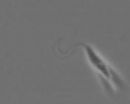(Press-News.org) (Boston) -- Patient navigation, or the linking of a newly diagnosed cancer patient with a professional trained in assisting patients though the complex journey of cancer diagnosis and treatment, may lead to better breast cancer care in high risk and minority women. The findings, recently published in the Journal of Clinical Oncology, is the first national study to show a relationship between navigators and the initiation of certain recommended treatments in breast cancer.
Using data from a previously published, multi-center study funded by the National Cancer Institute, researchers aimed to identify the possible benefits of assigning patient navigators to women recently diagnosed with breast cancer. According to the results, women were more likely to start recommended treatment when assisted by one of these trained specialists. For example, they were more likely to start hormonal therapy, which is considered the gold standard in treatment for certain types of breast cancer.
Naomi Ko, MD, MPH, instructor of medicine in the Section of Hematology Oncology at Boston University School of Medicine and a practicing breast oncologist at Boston Medical Center, stresses the need for further investigation. "This study gave us a glimpse of the potential benefit of patient navigation but there's a lot more research to be done. At this point we still need to understand how or why patient navigation works. Understanding where patient navigation is most beneficial in cancer care, in order to help the neediest patients, is a rich topic for future research," said Ko.
Navigators are experts in helping patients overcome the numerous obstacles they face, including monetary difficulties, transportation issues, educational and even language barriers, and have become an integral part of the cancer care model. It has been known that minority and high risk patients, or those who may benefit most from these navigators, often have worse outcomes after diagnosed with cancer.
INFORMATION: END
Patient navigation may aid in breast cancer treatment in high-risk populations
2014-08-04
ELSE PRESS RELEASES FROM THIS DATE:
Tricking plants to see the light may control the most important twitch on Earth
2014-08-04
MADISON, Wis. — Copious corn growing in tiny backyard plots? Roses blooming in December? Thanks to technology that the University of Wisconsin-Madison's Richard Vierstra has been developing for years, these things may soon be possible. And now, new findings out of the genetics professor's lab promise to advance that technology even further.
For the first time, Vierstra and his team have revealed the structure of the plant phytochrome, a critical molecule that detects the light that tells plants when to germinate, grow, make food, flower and even age. Like eyes, the phytochrome ...
Daylight is the best medicine, for nurses
2014-08-04
For the health and happiness of nurses – and for the best care of hospital patients – new Cornell research suggests exposure to natural light may be the best medicine.
In a forthcoming Cornell study published in the journal Health Environments Research and Design, Rana Zadeh, assistant professor of design and environmental analysis, discovered nurses who had access to natural light enjoyed significantly lower blood pressure, communicated more often with their colleagues, laughed more and served their patients in better moods than nurses who settled for large doses of ...
Diet change -- A solution to reduce water use?
2014-08-04
Eating less meat would protect water resources in dry areas around the world, researchers at Aalto University in Finland have found.
Reducing the use of animal products can have a considerable impact on areas suffering scarce water resources, as meat production requires more water than other agricultural products.
Diet change together with other actions, such as reduction of food losses and waste, may tackle the future challenges of food security, states researcher Mika Jalava from Aalto University in Finland.
Growing population and climate change are likely to ...
Cell plasticity may provide clues to origin of aggressive type of breast cancer
2014-08-04
INDIANAPOLIS -- Healthy breast cells may be able to reinvent themselves -- some have the flexibility to change after they are mature -- which leads researchers to postulate that similarities exist between this occurrence and the origins of a particularly aggressive type of breast cancer.
A team of researchers, led by Candice A.M. Sauder, M.D., while a resident at the Indiana University Department of Surgery, reported online in BMC Cell Biology that healthy breast cells separated from their normal environment were able to transform into types of cells similar to those ...
Students cope well with healthier snacks
2014-08-04
Students do not mind buying healthier snacks from vending machines, according to research published in the International Journal of Food Safety, Nutrition and Public Health. The findings could have implications for campus health initiatives as well as vendor profits.
The common stereotype of the busy student is of someone who will grab a junk food snack between lectures and rarely chooses a decent, hot meal over a chance to share a beer or two with fellow students. If the stereotype is an obvious generalization, one point remains true, snacks from vending machines on ...
Diabetes: A duo helps better
2014-08-04
Various active substances in oral antidiabetic agents are frequently combined in the treatment of diabetes in order to achieve an effective reduction in the blood sugar. A new, very promising approach combines the substances metformin and SGLT2 inhibitors, the latter were just approved in 2012. Scientists headed by Dr. Susanne Neschen and Prof. Dr. Martin Hrabě de Angelis from the Helmholtz Zentrum München, in cooperation with Ludwig-Maximilians-Universität München and drug manufacturer Sanofi Aventis, have discovered how the two substances reinforce each other.
Medicinal ...
Drilling in the dark: Biological impacts of fracking still largely unknown
2014-08-04
MADISON, Wis. – As production of shale gas soars, the industry's effects on nature and wildlife remain largely unexplored, according to a study by a group of conservation biologists published in Frontiers in Ecology and the Environment on August 1.
The report emphasizes the need to determine the environmental impact of chemical contamination from spills, well-casing failure, and other accidents.
"We know very little about how shale gas production is affecting plants and wildlife," says author Sara Souther, a conservation fellow in the Department of Botany at the ...
New insights into why adolescents carry meningitis-causing bacteria
2014-08-04
University of York scientists have shed new light on why teenagers and young adults are particularly susceptible to meningitis and septicaemia.
The team from the University's Department of Biology has discovered a novel metabolic pathway in the bacterium Neisseria meningitidis that may explain why this age group is particularly at risk of infection.
The results of the research, which was supported by the Centre for Chronic Diseases and Disorders (C2D2), are reported in the journal Molecular Microbiology.
N. meningitidis is a major cause of meningitis and septicaemia, ...
Researchers find potential new predictor of stress-related illnesses
2014-08-04
SAN ANTONIO (Aug. 2, 2014) ― Scientists studying depression in teens have discovered that subtle changes in a gene can predict how the brain reacts to stress, which can cause such health issues as depression, post-traumatic stress disorder and obesity.
The research, published Aug. 2 in the journal Nature, focuses on two longitudinal studies led by Douglas E. Williamson, Ph.D., from The University of Texas Health Science Center at San Antonio, and Ahmad Hariri, Ph.D., from Duke University. Scientists from Columbia University and the University of Pittsburgh are ...
Key adjustment enables parasite shape-shifting
2014-08-04
VIDEO:
Researchers show that suppressing expression of a key protein causes major changes in the shape of T. brucei (shown here), the parasite that causes African sleeping sickness.
Click here for more information.
Crafty parasites frequently undergo dramatic shape changes during their life cycles that enable them to adapt to different living conditions and thrive. But these transformations might not be as difficult as they appear, according to a study in The Journal of Cell Biology.
African ...


